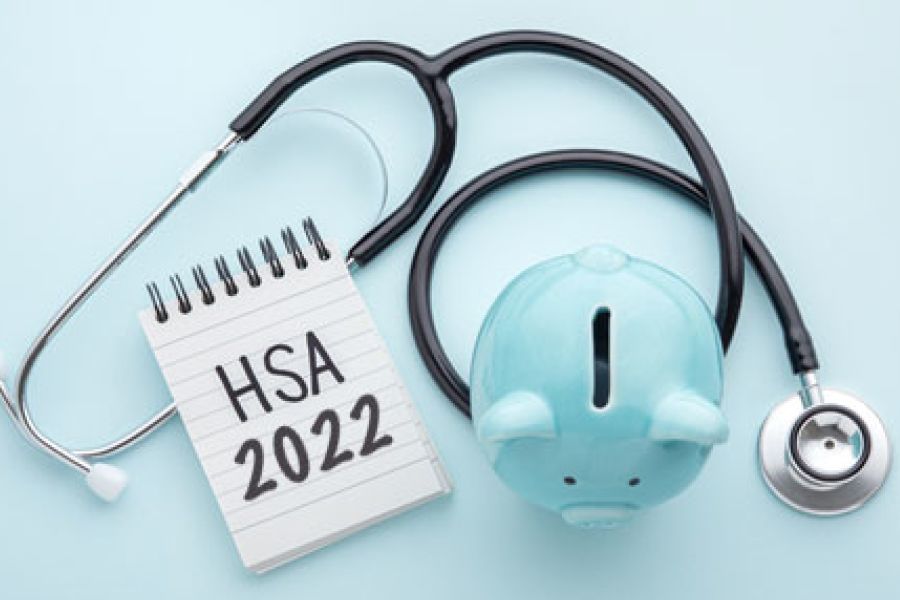Compiled annually, the “Dirty Dozen” lists a variety of common scams that taxpayers may encounter anytime but many of these schemes peak during filing season as people prepare their returns or hire someone to help with their taxes. This year's "Dirty Dozen" will be separated into four separate categories: Pandemic-related scams like Economic Impact Payment theft (This Blog Post) Personal information cons including phishing, ransomware and phone "vishing" (See Blog Post 1050) Ruses focusing on unsuspecting victims like fake charities and senior/immigrant fraud (See Blog Post 1051) Schemes that persuade taxpayers into unscrupulous actions such as Offer In Compromise mills and syndicated conservation easements (See Blog Post 1052) Economic Impact Payment theft A continuing threat to individuals is from identity thieves who try to steal Economic Impact Payments...

Compiled annually, the “Dirty Dozen” lists a variety of common scams that taxpayers may encounter anytime but many of these schemes peak during filing season as people prepare their returns or hire someone to help with their taxes. On 6/28/21 the Internal Revenue Service, via IR 2021-135, began its "Dirty Dozen" list for 2021 with a warning for taxpayers, tax professionals and financial institutions to be on the lookout for these 12 nefarious schemes and scams. This year's "Dirty Dozen" will be separated into four separate categories: Pandemic-related scams like Economic Impact Payment theft (See Blog Post 1049) Personal information cons including phishing, ransomware and phone "vishing" (See Blog Post 1050) Ruses focusing on unsuspecting victims like fake charities and senior/immigrant fraud (See Blog Post 1051) Schemes...
The world’s largest meat production company was recently sidelined by a ransomware attack. The hack forced the company to temporarily shutter plants in the United States, Canada and Australia, affecting the U.S. meat supply and even hurting commodity prices. If it seems like cybercriminals often target manufacturing (including food processing) and distribution companies, that’s because they do. According to software company Varonis, manufacturers account for nearly a quarter of all ransomware attacks — more than any other industry. To prevent your company from becoming another statistic, learn about security breaches and protect your network. A high price It’s only natural that manufacturers fear data breaches — and unfortunately hackers often can use that fear to cripple organizations through ransomware. This type of malware is installed on a computer...
Fraud perpetrators take whatever they can get their hands on. But fraudsters prefer cash because it’s virtually untraceable. Fortunately, fraud experts have the expertise and tools to trace even cash-based theft. Multiple opportunities According to the Association of Certified Fraud Examiners, there are three main categories of cash fraud, which includes checks because they’re easily converted to cash: theft of cash on hand, theft of cash receipts, and fraudulent disbursements. Fraudulent disbursements comprise many of the most frequently executed schemes, such as over-billing and “ghost” employee schemes. Over-billing vendors usually submit inflated invoices by overstating the price per unit or the quantity delivered. A dishonest vendor also might submit a legitimate invoice several times. Over-billing may involve collusion with employees of the victim organization, who typically receive kickbacks for...
If you’re a business owner and you hire your children this summer, you can obtain tax breaks and other non-tax benefits. The kids can gain on-the-job experience, spend time with you, save for college and learn how to manage money. And you may be able to: Shift your high-taxed income into tax-free or low-taxed income, Realize payroll tax savings (depending on the child’s age and how your business is organized), and Enable retirement plan contributions for the children. A legitimate job If you hire your child, you get a business tax deduction for employee wage expenses. In turn, the deduction reduces your federal income tax bill, your self-employment tax bill (if applicable), and your state income tax bill (if applicable). However, in order for your business to...
Eligible parents will soon begin receiving payments from the federal government. The IRS announced that the 2021 advance child tax credit (CTC) payments, which were created in the American Rescue Plan Act (ARPA), will begin being made on July 15, 2021. How have child tax credits changed? The ARPA temporarily expanded and made CTCs refundable for 2021. The law increased the maximum CTC — for 2021 only — to $3,600 for each qualifying child under age 6 and to $3,000 per child for children ages 6 to 17, provided their parents’ income is below a certain threshold. Advance payments will receive up to $300 monthly for each child under 6, and up to $250 monthly for each child 6 and older. The increased credit amount will be reduced...
The Employee Retention Tax Credit (ERTC) is a valuable tax break that was extended and modified by the American Rescue Plan Act (ARPA), enacted in March of 2021. Here’s a rundown of the rules for businesses that have considered revisiting the Employee Retention Tax Credit. Background Back in March of 2020, Congress originally enacted the ERTC in the CARES Act to encourage employers to hire and retain employees during the pandemic. At that time, the ERTC applied to wages paid after March 12, 2020, and before January 1, 2021. However, Congress later modified and extended the ERTC to apply to wages paid before July 1, 2021. The ARPA again extended and modified the ERTC to apply to wages paid after June 30, 2021, and before January 1, 2022. Thus, an eligible employer can...
The IRS recently released guidance providing the 2022 inflation-adjusted amounts for Health Savings Accounts (HSAs). Fundamentals of HSAs An HSA is a trust created or organized exclusively for the purpose of paying the “qualified medical expenses” of an “account beneficiary.” An HSA can only be established for the benefit of an “eligible individual” who is covered under a “high deductible health plan.” In addition, a participant can’t be enrolled in Medicare or have other health coverage (exceptions include dental, vision, long-term care, accident and specific disease insurance). A high deductible health plan (HDHP) is generally a plan with an annual deductible that isn’t less than $1,000 for self-only coverage and $2,000 for family coverage. In addition, the sum of the annual deductible and other annual out-of-pocket expenses required...
To generate revenue and foster customer loyalty, many businesses, including retailers, airlines and credit card companies, create loyalty and reward programs. Such programs can help companies attract and retain customers, but they may also be subject to fraud and abuse. ATO risk Loyalty programs are particularly vulnerable to account takeovers (ATOs). In these schemes, a criminal assumes control of a customer’s loyalty or rewards account and monetizes it. The thief redeems points for goods and services for personal use or sells them on the black market. These days, the information usually ends up on the dark web. ATOs often are successful because many loyalty programs lack the robust fraud controls and dedicated teams of investigators to prevent and investigate them. Often, companies don’t understand the extent of fraud...
Even after your 2020 tax return has been successfully transmitted to the IRS, you may still have questions after filing your return. Here are brief answers to three questions that we’re frequently asked at this time of year. Are you wondering when you will receive your refund? The IRS has an online tool that can tell you the status of your refund. Go to irs.gov and click on “Get Your Refund Status.” You’ll need your Social Security number, filing status and the exact refund amount. Which tax records can you throw away now? At a minimum, keep tax records related to your return for as long as the IRS can audit your return or assess additional taxes. In general, the statute of limitations is three years after you file...
- 1
- 2
- 3
- 4
- 5
- 6
- 7
- 8
- 9
- 10
- 11
- 12
- 13
- 14
- 15
- 16
- 17
- 18
- 19
- 20
- 21
- 22
- 23
- 24
- 25
- 26
- 27
- 28
- 29
- 30
- 31
- 32
- 33
- 34
- 35
- 36
- 37
- 38
- 39
- 40
- 41
- 42
- 43
- 44
- 45
- 46
- 47
- 48
- 49
- 50
- 51
- 52
- 53
- 54
- 55
- 56
- 57
- 58
- 59
- 60
- 61
- 62
- 63
- 64
- 65
- 66
- 67
- 68
- 69
- 70
- 71
- 72
- 73
- 74
- 75
- 76
- 77
- 78
- 79
- 80
- 81
- 82
- 83
- 84
- 85
- 86
- 87
- 88
- 89
- 90
- 91
- 92
- 93
- 94
- 95
- 96
- 97
- 98
- 99
- 100
- 101
- 102
- 103
- 104
- 105
- 106
- 107
- 108
- 109
- 110
- 111
- 112
- 113
- 114
- 115
- 116
- 117
- 118
- 119
- 120
- 121
- 122
- 123
- 124
- 125
- 126
- 127
- 128
- 129
- 130
- 131
- 132
- 133
- 134
- 135
- 136











